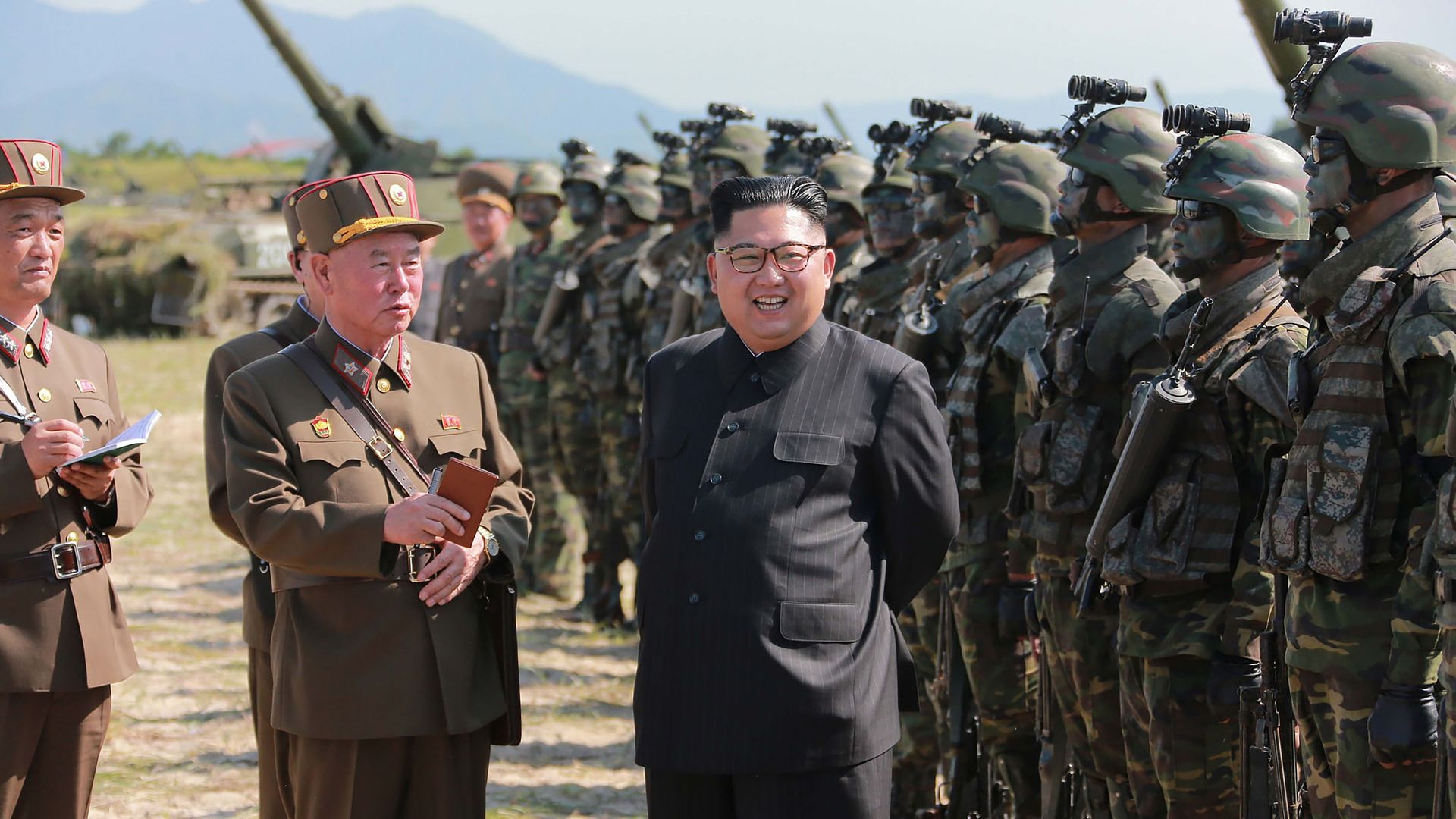Updated Jan 31, 2018 - Politics & Policy
Expert VoicesSigns of progress in Trump's North Korea pressure campaign
Add Axios as your preferred source to
see more of our stories on Google.

North Korean leader Kim Jong-Un presiding over a target strike exercise conducted by the special operation forces of the Korean People's Army (KPA) at an undisclosed location. Photo: AFP / KCNA via KNS / Getty Images
